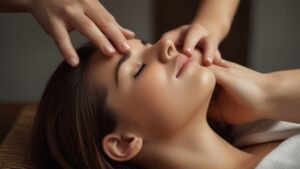
“Stress and Hair”: understanding the connection and minimizing the “negative effects”
- There are three types of balding that are associated with elevated anxiety levels:
Stress and hair : understanding the connection and minimizing the negative effects
1.Emanationof telogen. Huge numbers of hair follicles are forced into a resting stage during telogen emanation (pronounced TEL-o-jun uh-FLOO-vee-um). Stress Affected hairs may suddenly fall out when combing or washing your hair within a few months..
2.Telogen effluvium: Acute telogen effluvium is self-limitingTrusted Source and will typically resolve once the underlying cause is treated. Some research showsTrusted Source that the stress medication minoxidil can help people hair with chronic telogen effluvium.
However, further stress research is needed to confirm the full hair effects it can have on hair shedding.There is limited evidence on the effectiveness of treatments for alopecia areata, but negative effects dermatologists prescribe topical corticosteroids as the first-line treatment for the condition.
Dermatologists may give topical corticosteroids to children 10 years old or younger stress and hair corticosteroid injections to individuals older than 10 years with patchy alopecia.
A dermatologist may prescribe stress topical immunotherapy in people with extensive alopecia (greater than 50% scalp hair loss). Stress With this treatment, 74.6% of peopleTrusted Source with patchy alopecia experienced hair regrowth, and 54.4% of people with alopecia totalis showed hair regrowth. However, 38.2% of people also experienced recurrence of their alopecia.
3.Trichotillomania: A healthcare team may use several treatment strategies stress to help manage trichotillomania. In children, conservative hair methods like using gloves or socks to cover the hands and cutting the hair short can help.
Stress and Hair: understanding the connection and minimizing the negative effects
Habit reversal training, grounded in cognitive behavioral therapy (CBT), helps a person identify the cognitive distortions and the maladaptive behavior paired with them (hair-pulling) to changeTrusted Source them.
Hairloss causes Due to Stress
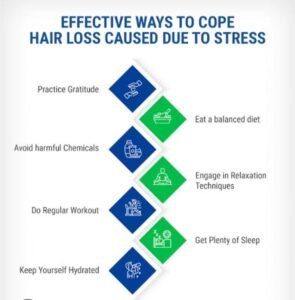
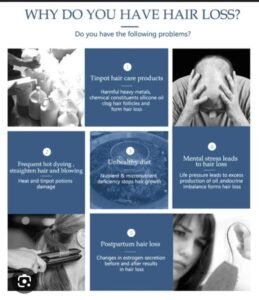
Trichotillomania, pronounced “trik-o-until o-MAY-nee-uh,” is the strong desire to remove hair from your scalp, eyebrows, or other body parts. Pulling one’s hair can be a coping mechanism for uncomfortable or gloomy feelings such as stress, tension, despair, fatigue, or discontent.
understanding the connection and minimizing the negative effects
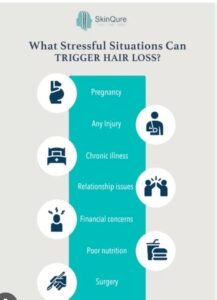
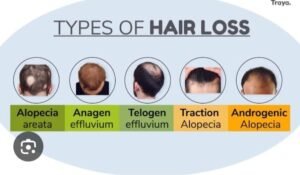
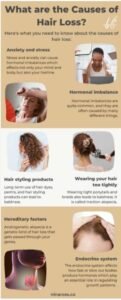
4.Alopecia areata. Alopecia areata (al-o-PEE-she-uh ar-e-A-tuh) is known to be caused by a number of factors, possibly involving significant pressure. Balding results from the body’s protective framework targeting the hair follicles in cases of alopecia areata.Undoubtedly, stress can affect hair health in a variety of ways.
5.Stress and hair: High levels of stress can interfere with the normal cycle of hair growth, causing increased hair loss, thinning hair, and even conditions that cause baldness, such as alopecia areata.
Stress molecules, such cortisol, can also exacerbate the situation, which may have an effect on the hair follicles.In order to mitigate the negative effects of weight on hair, it is important to focus on pressure-relieving techniques such as regular exercise.
deep breathing exercises or meditation, adequate sleep, and maintaining a healthy lifestyle with balanced nutrition.Seeking assistance from friends, family, or a professional can also help one successfully adjust to pressure.
Finally, using gentle hair care products and combining scalp massages can also improve scalp health.
 Stress can indeed affect hair health in various ways. Chronic stress can disrupt the hair growth cycle, leading to increased shedding or even hair loss. Additionally, stress can trigger conditions like alopecia areata, where the immune system attacks hair follicles.
Stress can indeed affect hair health in various ways. Chronic stress can disrupt the hair growth cycle, leading to increased shedding or even hair loss. Additionally, stress can trigger conditions like alopecia areata, where the immune system attacks hair follicles.
Minimizing stress through relaxation techniques, exercise, adequate sleep, and a balanced diet can help mitigate these negative effects on hair. Additionally, seeking support from friends, family, or a therapist can also be beneficial in managing 
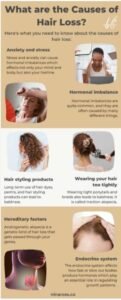 stress and hair : understanding the connection and minimizing the negative effects
stress and hair : understanding the connection and minimizing the negative effects
Stress is a natural response to challenging situations, but when it becomes chronic, it can have negative effects on our health, including hair loss. Studies have shown that stress can trigger or worsen hair loss in both men and women.
When we experience stress, our body releases cortisol1, which can disrupt the natural hair growth cycle6. Cortisol2 can cause hair follicles to prematurely enter the resting phase, which can lead to hair thinning and shedding.
Stress can also lead to a condition called telogen effluvium3, which is characterized by excessive hair shedding all over the scalp. This condition is usually temporary and hair growth resumes once the stressor is removed or managed.
6.Various stress :Chronic stress can also lead to a condition called alopecia areata4, which is an autoimmune disorder that causes hair loss in patches. It is believed that stress can trigger the onset of this condition in people who are genetically predisposed to it.
Managing stress is crucial in preventing or reducing hair loss. This can be achieved through various methods such as exercise, meditation, therapy, and relaxation techniques.
It is also essential to maintain a healthy diet and get enough sleep to support overall health and hair growth.



